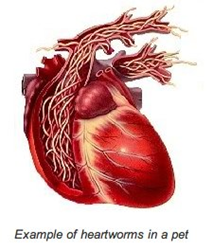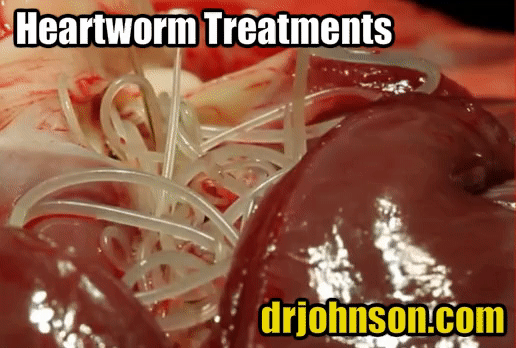The Difference Between Heartworm Treatments
My friend is fostering a dog through a rescue and the dog is heartworm positive. I was wondering what is involved in slow kill treatment for dogs with heart worms? This rescue seems to be preferring the slow kill treatment while the foster is unsure of the slow kill treatment. I’d like to ask your expert opinion on what is involved in the slow kill treatment.
Brilliant question.
Here are the actual facts on heartworm treatments.
- Slow kill has a 1:1,000 Chance to kill the patient with anaphylaxis
- Slow kill has a 1-out-of-2 chance to cause further damage however slight, to the heart valves, and function over 18-24 months.
- Slow kill has a 1:200 chance of embolism and death over 18-24 months.
- Fast kill is organic arsenic. It’s just a ‘different’ delivery system than the older IV Caparsolate.
- Fast kill is a risky and carcinogenic compound.
- Fast kill has a 1:500 chance of anaphylaxis but only for the first 3 weeks.
- Fast kill has a 1:200 chance of further consequential damage to the dog, at the heart or organs.
- Fast kill has a 1:200 chance of embolism and death, but only over 6 weeks.
Conclusions:

Slow kill is a long process which leaves the door open to embolism and heart damage. But it’s unarguably safer.
Fast kill closes the door on long term issues by ‘wrapping up’ the infection in weeks instead of years, but on the very short term, doubles the chance for problem of consequence.
My decision would be based on the value of the dog sentimentally or economically, the age of the pet, and the pet’s realistic activity level and “years-left-to-live.”
My dog Ajax is 3 years old (2019) and I love him so, so much. If he contracted heart worms I would perform an electrocardiogram and find out if it was a heavy burden. If his heart was compromised in any way I would give him Fast Kill via Immiticide.
If the case were a rescue and costs were always a factor, I would let Slow Kill do the job. That would be predicated on whether I trusted the foster to give the preventative without fail.
Doc Johnson






